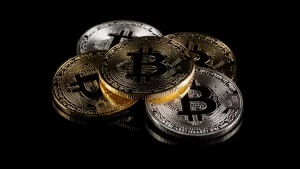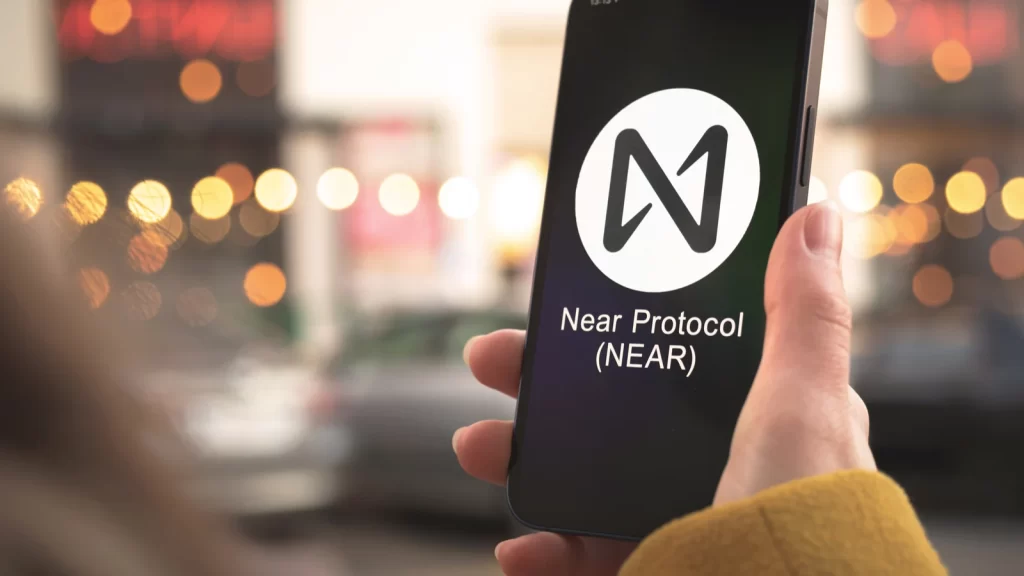The German government aimed to sell its Bitcoin holdings quickly without focusing on minimizing market impact or maximizing profitability.
The selling pattern of the government-labeled wallet, which included large transfers to various centralized cryptocurrency exchanges (CEXs), indicated an intention to cash in short-term profits, according to Miguel Morel, founder of Arkham Intelligence.
Morel noted that the transfers to multiple exchanges were made to maximize Bitcoin liquidity.
He told Cointelegraph during an interview at EthCC, “The last thing I would have expected is that they would just go to five different exchanges and start market selling… The fact that they’re going to so many different exchanges just reads like they’re just trying to get as much liquidity from each order book as possible because otherwise, why wouldn’t you just use one?”
He explained that setting up accounts and transferring funds to five different exchanges is more complex than selling through a single one.
The outflows and news surrounding the German government’s Bitcoin sales exerted downward pressure on Bitcoin.
The price of Bitcoin began to recover from June’s downtrend only after the government exhausted its Bitcoin supply.
Bitcoin’s price recovery above the $60,000 psychological mark occurred on July 14, a day after the government-labeled wallet ran out of BTC.
During June, Bitcoin’s price fell over 7% but then staged an over 11% weekly recovery, trading at $64,688 as of 1:50 pm UTC, according to CoinMarketCap data.
READ MORE: Ava Protocol Announces Mainnet Launch on Ethereum as EigenLayer AVS for Smart Contact Automation
The decline in Bitcoin’s price was not solely due to the German government’s selling.
Other factors, such as the incoming creditor repayments from Mt. Gox and stagnating Bitcoin exchange-traded fund (ETF) flows, also contributed to the price slump.
According to Morel, the volume of Bitcoin sold by the government had less impact on the price than the market’s reaction to the news.
He explained, “It could well be that there’s $20 billion of Bitcoin volume a day, and the German government selling $60 million a day is easily absorbed.
“It could also be the case that because there’s news of the German government selling… there’s $5 billion going out the door on the retail side because they’re afraid of getting caught.”
Popular analyst RunnerXBT suggested that a real opportunity to gain long exposure for Bitcoin would come after the market has absorbed the Mt. Gox repayments, similar to the scenario following the German government’s Bitcoin sales.
The analyst wrote, “Just like with Germany transfers, eventually, they will have no price impact. That’s when I hope to long.”
To submit a crypto press release (PR), send an email to sales@cryptointelligence.co.uk.
Crypto fund issuer Valour has announced the launch of an exchange-traded product (ETP) for Near Protocol’s native token, NEAR, according to a July 17 statement from Valour’s parent company, DeFi Technologies (CBOE CA: DEFI).
The new ETP will trade on Sweden’s Spotlight Stock Market, providing both retail and institutional investors with exposure to the decentralized application development platform, the announcement revealed.
Elaine Buehler, Valour’s head of product, stated that the new fund offering would allow investors to access an asset known for its “transformative impact on DeFi and NFTs,” referring to decentralized finance and non-fungible tokens.
Near Protocol is designed to overcome many challenges inherent in blockchain development, such as user onboarding and cross-chain operations.
Its native NEAR token has a market capitalization of around $6.8 billion, ranking it among the top 20 digital assets worldwide, according to CoinMarketCap data.
READ MORE: Metaplanet Buys $1.2M in Bitcoin Amid Rally, Shares Soar 25%
Web3 projects like Burrow, a decentralized money market protocol, and Mintbase, an NFT platform, are built on Near Protocol’s technology stack.
The NEAR ETP joins Valour’s existing portfolio of alternative digital asset ETPs.
Valour operates one of the largest Solana ETPs, Valor Solana, and offers various staking products, including ETPs for Bitcoin, Ether, and Internet Computer.
On July 16, U.S. regulators reportedly granted preliminary approval to investment managers BlackRock, Franklin Templeton, and VanEck to list the first exchange-traded ETH products in the U.S. Analysts suggest that the launch of ETH ETFs may lead to a surge in crypto exchange-traded products in the U.S., including a potential Solana-based exchange-traded fund (ETF).
DeFi Technologies, Valour’s parent company, manages approximately $600 million in assets across various crypto-native strategies.
On July 16, DeFi Technologies agreed to acquire trading desk Stillman Digital in an all-stock deal, which analysts believe will transform the Canadian crypto platform into “a smaller version of Galaxy Digital.”
To submit a crypto press release (PR), send an email to sales@cryptointelligence.co.uk.
A Web3 executive believes that the recent data breach at multinational telecommunications company AT&T could have been avoided if the data were stored on the blockchain.
On July 12, AT&T disclosed in a filing with the United States Securities and Exchange Commission (SEC) that an investigation revealed a breach compromising customer data.
The attackers accessed and copied call logs stored with a third-party cloud provider. The data included records of calls, texts, and phone numbers.
Although the content of communications was not compromised, the company fears that hackers could use tools to link phone numbers to customer identities.
Tim Kravchunovsky, founder and CEO of the decentralized telecommunications network Chirp, highlighted the vulnerabilities in the networks people rely on most.
He emphasized that this was the second breach report, suggesting such incidents are “becoming the rule, rather than the exception.”
He also noted the delay in reporting the breach. Kravchunovsky said:
“It’s also concerning that it takes more than two years to report these breaches, so there is no guarantee something similar isn’t happening right now.”
He warned that millions of customers could be at risk as hackers might identify their homes, workplaces, and connections, making them more susceptible to fraud.
READ MORE: $STOG Burns $1 Million in Liquidity to Strengthen Market Position
Kravchunovsky argued that current technological solutions are insufficient and new ones are necessary.
He believes the odds of a breach would be “much slimmer” if AT&T’s data were on the blockchain. Kravchunovsky stated that blockchain technology and AI can create more secure databases.
“Storing the data on an immutable ledger and tracking threats in real-time allows for a rapid response before a breach occurs,” he added.
Kravchunovsky explained that decentralized solutions, such as physical infrastructure networks (DePIN), routinely protect large data streams from cyber threats.
While Web3 technology cannot guarantee the prevention of all breaches, he believes it significantly reduces the risk. He explained:
“Of course, there’s never a guarantee that a breach like the one reported by AT&T couldn’t happen if the data were stored on the blockchain, but the odds are much slimmer.
Plus, blockchain is transparent, so it’s impossible to hide such breaches for two years.”
Kravchunovsky concludes that with today’s technology, such breaches are “inexcusable.”
To submit a crypto press release (PR), send an email to sales@cryptointelligence.co.uk.
In just three hours on July 16, Mt. Gox moved over 140,000 Bitcoin, valued at nearly $9 billion, to a known cold wallet and two unknown addresses.
According to Arkham Intelligence data, Mt. Gox’s main wallet still holds 138,985 Bitcoin (BTC), worth around $8.7 billion.
This marks the first time in two weeks that funds have been mobilized.
Two major transactions occurred: nearly 96,000 BTC, worth over $6 billion, were transferred to two unknown wallets, while an initial 44,527 BTC was sent to a known Mt. Gox cold wallet.
Arkham Intelligence reported over 140,000 BTC moved in just three hours.
The total volume of Mt. Gox’s BTC transactions on July 16 reached almost 190,000 BTC, equating to over $12 billion in value.
One unknown address, ending in “BHDct9b,” received 42,587 BTC, valued at $2.69 billion. The remaining 4,641.24 BTC, worth $293.94 million, was transferred to “Mt. Gox: Cold Wallet (1Jbez).”
The “BHDct9b” address has yet to transfer the 42,587 BTC, causing market fear and a decline in Bitcoin’s value as sentiment turned negative.
Shortly afterward, another 48,641 BTC, valued at $3.07 billion, was sent to a different unknown address, further depleting the main Mt. Gox wallet.
READ MORE: John Bigatton Convicted for Unlicensed Financial Advice in Bitconnect Scandal
The BTC price reached nearly $65,000 earlier on July 16 but dropped to $63,000 within hours, a decline of over 3%.
This ripple effect also led to more than a 5% dip in altcoins like Uniswap, Polkadot, and Bitcoin Cash.
Market sentiment became bearish as BTC’s price began to fall an hour before the first Mt. Gox transaction on July 16, continuing to decline as more outflows hit unknown wallets.
On July 5, Mt. Gox announced it would begin repaying its BTC and BCH debts to creditors, stating that the repayments would be made via designated crypto exchanges.
The announcement identified Mt. Gox Co. Ltd. as the Rehabilitation Debtor and Nobuaki Kobayashi as the Rehabilitation Trustee.
The statement indicated that the remaining rehabilitation creditors would receive funds “promptly” after fulfilling prerequisite conditions.
With over $9 billion in BTC outflows on July 16, the promise of prompt repayments might be realized before August.
To submit a crypto press release (PR), send an email to sales@cryptointelligence.co.uk.
Creditors of the hacked cryptocurrency exchange Mt. Gox are not rushing to sell their Bitcoin payouts, according to a Reddit community vote.
A recent poll on the Mt. Gox Insolvency subreddit revealed that most Mt. Gox creditors plan to retain their Bitcoin payouts.
These payouts are being received nearly 11 years after the Mt. Gox hack.
Mt. Gox Insolvency is a subreddit for those affected by the 2014 collapse of Mt. Gox and participating in the official insolvency process in Tokyo through the Japanese court system.
According to the poll, which closed on July 13, approximately 260 creditors (56% of 467 participants) plan to hold onto their Bitcoin.
This decision aligns with the Bitcoiner strategy known as hodl, where investors hold onto BTC despite price fluctuations.
Conversely, 88 respondents (about 20%) indicated they would sell 100% of their BTC payouts. Around 14% said they would sell up to 25% of their BTC, while about 6% planned to sell up to 50%.
While the poll may reflect investor sentiment on the subreddit, it doesn’t paint the full picture.
Discrepancies in payout amounts and the fact that only a fraction of creditors participated in the vote are significant factors.
“This is all good fun, but doesn’t mean anything,” one Redditor commented, highlighting the variance in BTC holdings among creditors.
Another poster added, “You cannot take the results of this survey and calculate the percentage of Bitcoin that will be sold and be anywhere near accurate unless you get lucky.”
READ MORE: Fairspin’s Innovative Crypto Gaming: Changing the Future of Online Gambling
Despite these limitations, some believe the polls are useful.
“The polls about receiving fiat from the trustee changed every week with the increased disbursement and showed how many creditors were compensated,” a Mt. Gox creditor told Cointelegraph.
Mt. Gox was once the world’s largest Bitcoin exchange, handling approximately 70% of all BTC transactions before its collapse in 2014.
The exchange lost 850,000 BTC (4% of all issued Bitcoin) in a security breach. Over the years, the Mt. Gox trustee has recovered about 141,000 BTC to repay creditors.
As of July 17, more than 36% of the owed BTC had been distributed. Over 13,000 creditors received repayments in Bitcoin and Bitcoin Cash as of July 16.
According to Mt. Gox Balance Bot, the trustee’s current balance is 47,228 BTC, worth about $3 billion. Since May 30, 94,457 BTC has been moved from these addresses.
Django Bits, the creator of Mt. Gox Balance Bot, noted that recent transactions to Kraken might require adjustments to the bot.
“Last week, the trustee sent a big chunk, but it turned out that most of it was sent to a change address,” he told Cointelegraph.
“I did not yet have time to check the movements but I might need to adjust the bot again,” he added.
To submit a crypto press release (PR), send an email to sales@cryptointelligence.co.uk.
Fairspin, a leading online crypto casino, is reshaping the iGaming industry with its unique blend of cutting-edge technology, premium games, and innovative income streams.
The platform brings an inclusive blockchain-based gambling experience with endless opportunities to win big, earn passively, and enjoy top games with the highest level of security and transparency.
The introduction of Fairspin’s proprietary TFS Token has further enhanced the casino’s excellence, significantly amplifying players’ rewards and benefits.
Top Digital Trend: Monetizing Every Second
“At Fairspin, we’re offering more than a gaming platform. We ensure an ecosystem where players can truly benefit from their passion,” says Poly, Fairspin’s Community Manager. “Our exclusive programs allow them to earn more while they play and hold TFS Tokens.”
- The Play to Earn program introduces a revolutionary concept of instant rakeback rewards. Players receive TFS Tokens for every bet, regardless of the outcome, monetizing their gaming activity.
- The Hold to Earn program is a passive income strategy that allows users to stake their TFS Tokens for flexible periods with an impressive APR of up to 500%.
Fairspin’s innovative approach extends to its bonus structure as well. New users are welcomed with a 450% bonus and up to 140 free spins over their first four deposits. The platform also offers numerous promotions and a VIP loyalty program, ensuring players are consistently rewarded for their participation.
Be a Part of IGaming Future
As the iGaming industry evolves, Fairspin leads the charge into a new era of online gambling. By combining pioneering technology with innovative earning opportunities, Fairspin offers an unparalleled gaming experience beyond mere entertainment.
Join the revolution in online gambling – register at Fairspin now and experience the future of iGaming today!
About Fairspin
Established in 2018, Fairspin is a licensed, blockchain-based online iGaming platform that offers over 9,400 games from top providers, innovative earning programs, and unparalleled transparency. With an array of crypto and fiat payment options, the best software, and a multilingual interface, Fairspin has become a preferred destination for gamblers worldwide.
Cryptocurrency self-custody, where the owner has exclusive control over their crypto holdings, is gaining traction with the introduction of a new wearable cold wallet.
On July 17, hardware wallet firm Tangem announced the Tangem Ring, a self-custodial crypto wallet designed as a ring.
Tangem’s chief technology officer, Andrey Lazutkin, explained that the Tangem Ring combines self-custody with wearables to promote daily cryptocurrency use. He said:
“We believe that cryptocurrency should bring daily benefits to humanity, not just sit in a bank vault.
“In other words, cryptocurrency should be used on a daily basis. And we in Tangem want to create a device for this daily use.”
The Tangem Ring raises questions about the security of carrying such a wallet in public.
Lazutkin assured that the ring has protections similar to Tangem’s Visa-integrated hardware wallet in card form.
He stated, “The ring, like the Tangem wallet in card form, is protected by an access code. Even if stolen, access to cryptocurrency will be blocked.”
He emphasized the ring’s security, noting it contains an EAL6+ secure element, making it nearly impossible to hack.
Alex Gomez, founder of CyberScrilla, highlighted the need for mobile wallets like the crypto ring, as crypto owners can’t always manage their holdings from their desks.
He added, “Even if you lose it, there are security measures in place to ensure that no one can access your crypto, even if they discover that the ring is a crypto wallet.”
Jennifer Ghelardini, a research analyst at KasMedia journal, supported the concept, mentioning other wearable self-custody wallets such as Ledger’s necklace pendants and keychains.
READ MORE: Ava Protocol Announces Mainnet Launch on Ethereum as EigenLayer AVS for Smart Contact Automation
She said, “I love the idea of having an inconspicuous way to carry your crypto with you, so you will be able to sell or trade when traveling.”
Regarding regulation, the Tangem Ring will initially launch without payment capabilities.
A Tangem spokesperson stated, “The crypto ring we are launching today will be available for pre-order and will begin shipping to users from the end of October.” Integration with the Visa payment chip is planned for 2025.
The Tangem Ring will be available in all countries where Tangem Pay operates, including Europe and the UK. European regulators have shown concern about self-custodial solutions and related payments.
However, a proposed $1,100 limit on crypto payments from self-custodial wallets was ultimately scrapped by the European Parliament.
This development coincides with major crypto payment firms embracing self-custody, launching solutions that combine self-custodial ownership with day-to-day payments.
Industry executives believe self-custody will drive the adoption of crypto payments.
To submit a crypto press release (PR), send an email to sales@cryptointelligence.co.uk.
Confidential computing technologies have the potential to unlock the next $1 trillion in capital for the cryptocurrency ecosystem.
Advances in privacy technologies, such as fully homomorphic encryption (FHE), could drive this growth, according to Remi Gai, founder of Inco.
Speaking exclusively to Cointelegraph during the FHE Summit 2024, Gai stated: “There’s the next trillion dollars of opportunities because if you think about what we’re building, it’s enabling creators to build more applications. So first, we’re growing the pie of what’s possible in Web3.
A lot of these use cases in Web2 just cannot work in Web3 because we’re missing this confidentiality aspect.”
Inco is a modular confidential computing network that builds FHE-based solutions, aiming to become the confidential computing layer of the blockchain.
For the crypto space to achieve mass institutional adoption, greater privacy is essential.
Mainstream institutions are often hesitant to join the decentralized finance (DeFi) space due to the lack of privacy in Web3. Confidential computing technologies could change this, as Gai explained:
“Institutions are still having a hard time entering the space because everything is transparent.
Now, if you enable an experience similar to what they’re comfortable with in Web2, suddenly this could bring a lot more liquidity, use cases, bigger participants, and money to enter the space.”
Gai emphasized that encryption is not about anonymity but about securing valuable information.
He likened it to the secure sockets layer (SSL) of the internet, saying:
“If blockchain is the value layer of the internet, then you need the SSL equivalent. A lot of people still think encryption means anonymity.
READ MORE: CoinStats Exploiter Moves Nearly $1 Million in Ether to Tornado Cash Following Major Breach
“No, it just means that you need to take certain pieces of information that are valuable through encryption.
“And that is what we’re missing today.”
Advancements in confidential computing will not only attract institutional investors but also retail investors.
Gai mentioned that new use cases created by these technologies would bring additional liquidity from both sectors:
“If you think about the new use cases it will create, it will also attract net new users.
“That will also bring in liquidity. So it could also trickle down to retail. It doesn’t have to be just institutions.”
The influx of new liquidity will largely depend on the disruptive potential of the use cases introduced by confidential computing advancements.
These technologies promise significant benefits for financial institutions by enabling computations on encrypted data without decryption, exemplified by fully homomorphic encryption (FHE) solutions.
To submit a crypto press release (PR), send an email to sales@cryptointelligence.co.uk.
Following a recent court ruling in Illinois classifying Bitcoin and Ether as commodities, stakeholders in Nigeria are advocating for a similar approach from the Nigerian Securities and Exchange Commission (SEC) to enhance regulatory clarity.
This call for classification comes amidst the growing importance of cryptocurrencies in global finance.
Lucky Uwakwe, chairman of Nigeria’s Blockchain Industry Coordinating Committee (BICCoN), emphasized the necessity of defining crypto asset classes clearly.
In an interview with Cointelegraph, Uwakwe stressed, “The Nigerian SEC should make rules that define the asset class of crypto assets or break respective crypto into asset classes and explain how such crypto qualifies as securities or commodities.”
He noted the distinction made by the US SEC and the Commodity Futures Trading Commission (CFTC) regarding Bitcoin and Ether as commodities, while highlighting how protocols like proof-of-stake (PoS) or proof-of-work (PoW) could affect the classification of other crypto assets.
In Nigeria, however, the focus of the Commodity Board has traditionally been on physical commodities like agricultural products, with minimal attention given to digital commodities.
Oladotun Wilfred Akangbe, chief marketing officer at Flincap, a platform for African over-the-counter crypto exchanges, underlined the diverse nature of cryptocurrencies and the varied interest from Nigerian governmental bodies.
READ MORE: German Government Resumes Bitcoin Sales, Sparking Market Volatility Concerns
“Cryptocurrencies like Bitcoin and Ethereum have become valuable commodities in global markets,” Akangbe remarked, advocating for distinct regulatory strategies tailored to these foundational cryptocurrencies compared to others.
Akangbe suggested that the SEC concentrate primarily on cryptocurrencies used for fundraising, such as initial coin offerings (ICOs).
Another local crypto analyst, Rume Ophi, argued for individual scrutiny of each cryptocurrency to determine its classification as a security or commodity, emphasizing their uniqueness.
These recommendations are pivotal as Nigeria seeks to establish a robust regulatory framework for digital assets.
By classifying Bitcoin and Ether as commodities, the Nigerian SEC can offer much-needed clarity and stability to the market.
This approach not only fosters innovation but also ensures adherence to regulatory standards.
To submit a crypto press release (PR), send an email to sales@cryptointelligence.co.uk.
South Korea’s ruling People’s Power Party has proposed delaying the country’s tax on crypto trading profits.
On July 12, the party submitted the proposal, highlighting a negative sentiment towards crypto assets. The proposal stated that rapidly imposing taxes on virtual assets is “not advisable at this time.”
The party argued that crypto assets have higher risks compared to stocks, and imposing income tax could drive investors away from the market.
Originally, the tax on cryptocurrency gains was set to begin on Jan. 1, 2025. However, if the proposal is approved, the implementation will be postponed until Jan. 1, 2028.
As part of its campaign before South Korea’s general elections in April, the People’s Power Party promised to delay the crypto gains tax by two years.
On Feb. 19, the party emphasized the need to establish a comprehensive crypto framework before diving into taxation.
They stressed that crypto should only be taxed once a solid framework is in place.
A party representative pointed out that, unlike the stock exchange, there are no mandated entities to oversee crypto transactions.
Therefore, the party believes that spending two years to develop such a system is necessary.
The Korea Economic Daily reported that the plan to tax crypto gains was initially set to be implemented in 2021.
However, due to backlash from crypto industry leaders and stakeholders, the government delayed the tax implementation to 2023, and later to Jan. 1, 2025, to address investor concerns.
If the new proposal is accepted, the crypto gains tax will be delayed by nearly seven years from its original schedule.
Currently, South Korean investors must pay a 20% capital gains tax if their annual gains exceed 2.5 million won (approximately $1,800).
This threshold is much lower than that for stocks, where only gains exceeding 50 million won (about $36,000) are subject to taxation.
To submit a crypto press release (PR), send an email to sales@cryptointelligence.co.uk.












